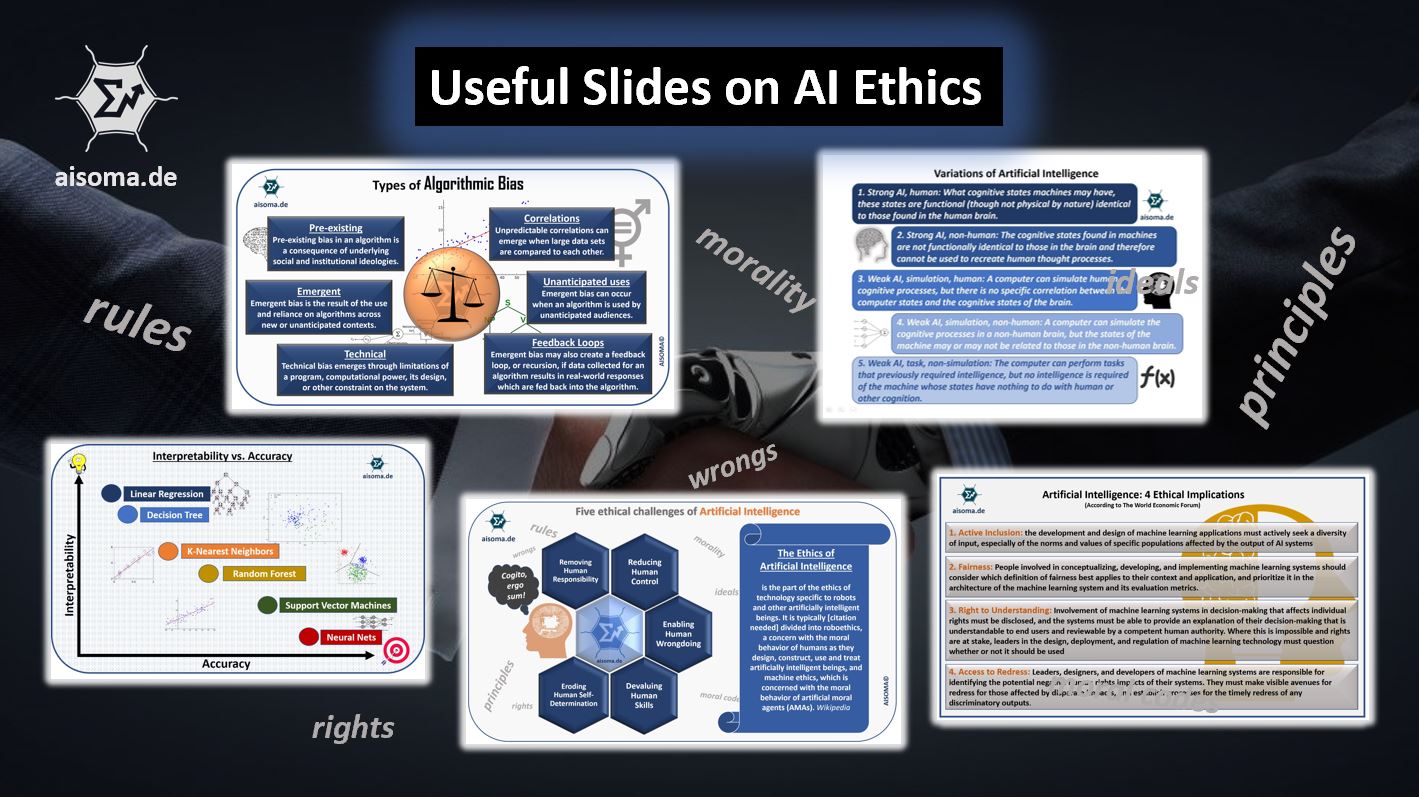Inhalt
Some basic information on AI Ethics & Algorithmic Bias:
The ethics of artificial intelligence is part of the ethics of technology specific to robots and other artificially intelligent beings. It is typically[citation needed] divided into robo-ethics, a concern with the moral behavior of humans as they design, construct, use and treat artificially intelligent beings, and machine ethics, which is concerned with the moral behavior of artificial moral agents (AMAs). (more info)
Algorithmic bias
Algorithmic bias describes systematic and repeatable errors in a computer system that create unfair outcomes, such as privileging one arbitrary group of users over others. Bias can emerge due to many factors, including but not limited to the design of the algorithm or the unintended or unanticipated use or decisions relating to the way data is coded, collected, selected or used to train the algorithm. Algorithmic bias is found across platforms, including but not limited to search engine results and social media platforms, and can have impacts ranging from inadvertent privacy violations to reinforcing social biases of race, gender, sexuality, and ethnicity. (more info)
IEEE standard
Currently, a new IEEE standard is being drafted that aims to specify methodologies which help creators of algorithms eliminate issues of bias and articulate transparency (i.e. to authorities or end users) about the function and possible effects of their algorithms. The project was approved February 2017 and is sponsored by the Software & Systems Engineering Standards Committee, a committee chartered by the IEEE Computer Society. A draft of the standard is expected to be submitted for balloting in June 2019. (more info on IEEE)
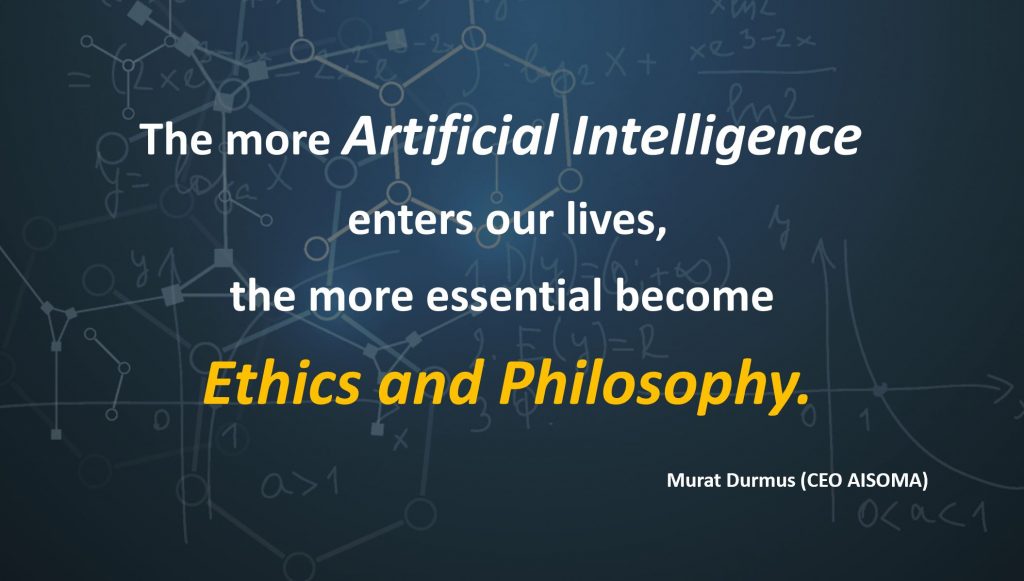
According to the motto: “A picture says more than a thousand words” some useful slides below.
1. Five ethical challenges of Artificial Intelligence
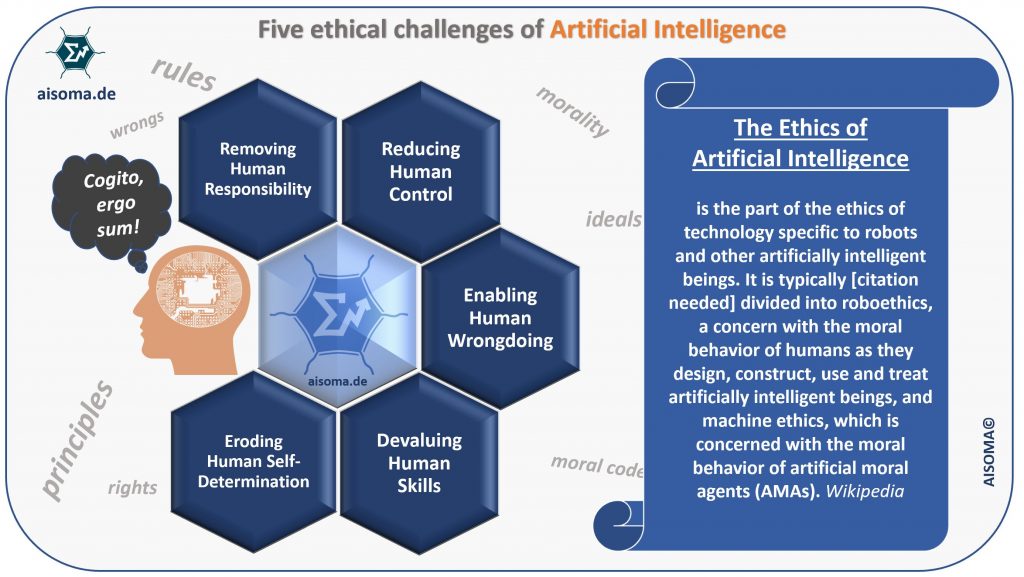
2. Artificial Intelligence: 4 ethical implications
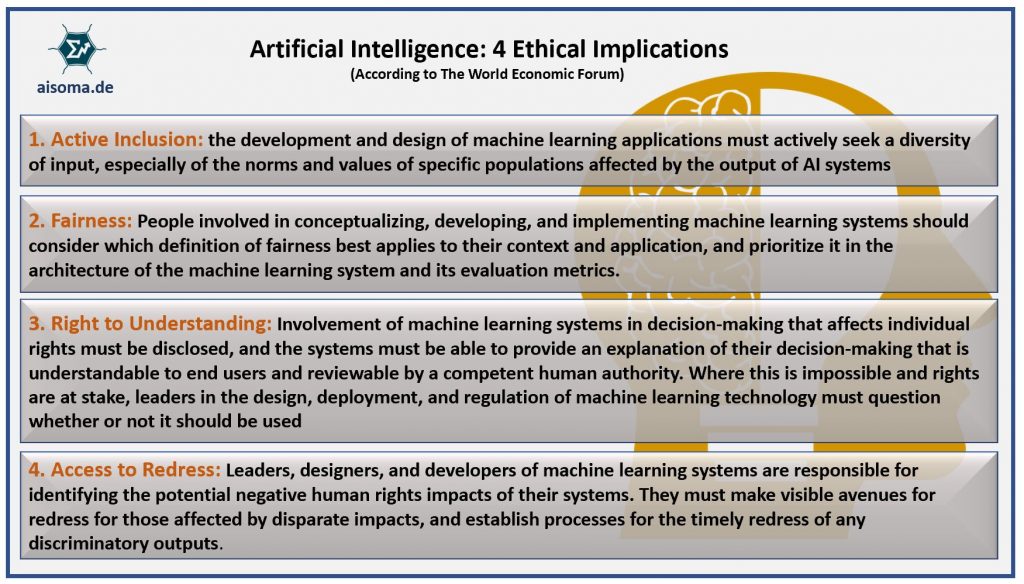
[bctt tweet=”Useful Slides on AI Ethics #AIEthics #AI #ethics #machinelearning #bias #slides” username=”AISOMA_AG”]
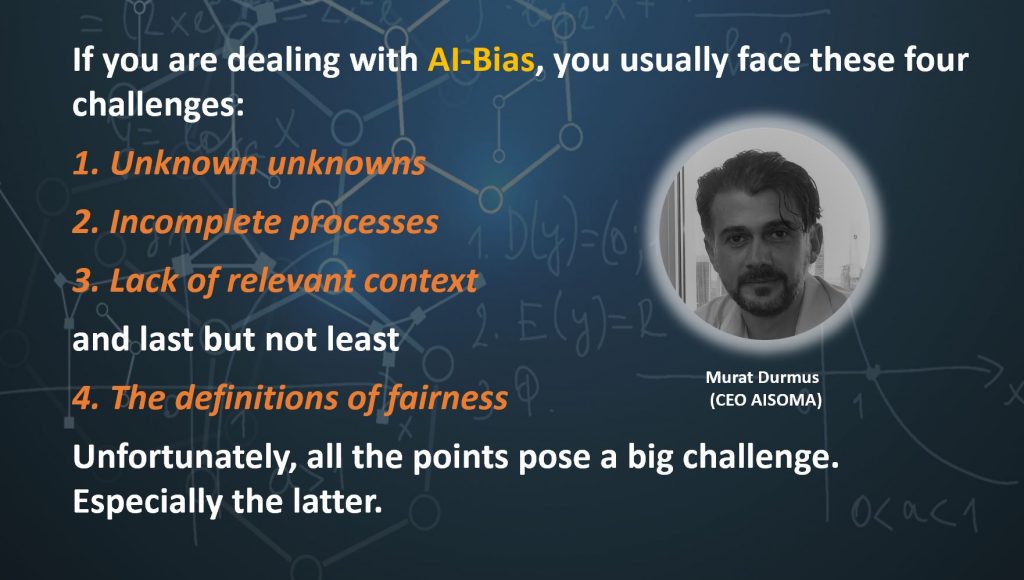
3. Types of Algorithmic Bias
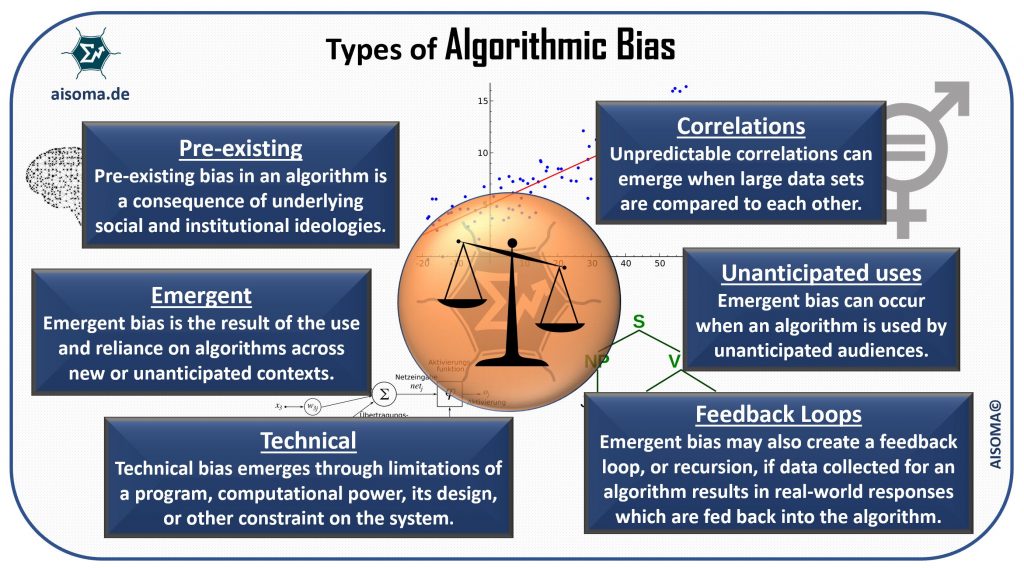
4. Interpretability versus Accuracy
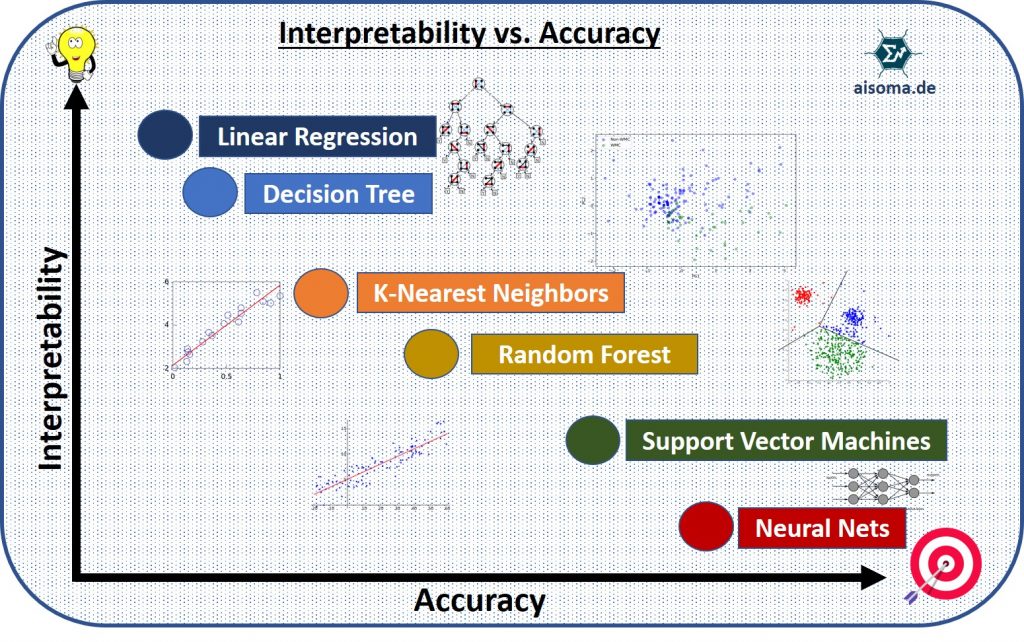
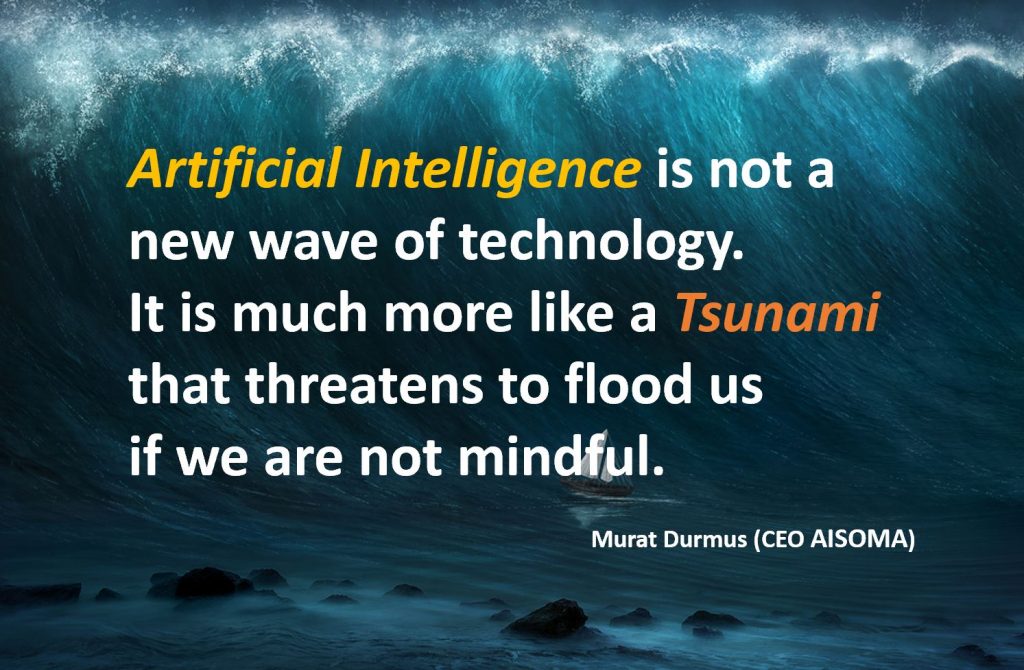
5. Variations of Artificial Intelligence
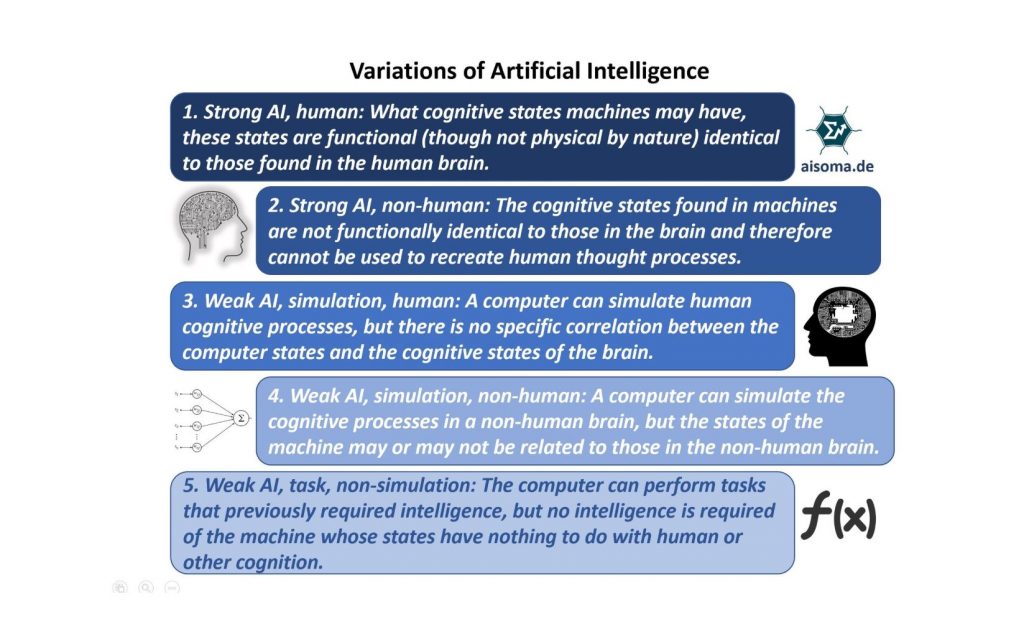
Further Reading:
